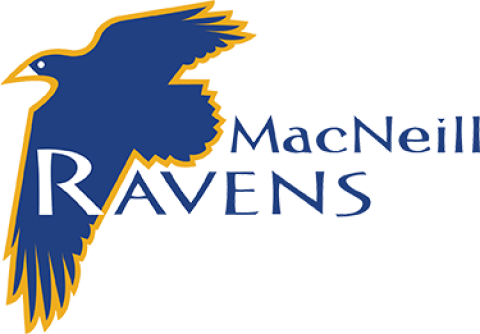Year in Review: Building POWERful Connections
Research clearly shows that students who feel connected to their school community, and to the adults within that community, are more likely to experience academic success. In "Relationships Matter: Linking Teacher Support to Student Engagement and Achievement", authors Klem and Connell state that "students with caring and supportive interpersonal relationship in school report more positive academic attitudes and values, and more satisfaction with school." (2009) Regardless of other variables, such as socio-economic background, relationships matter.
At A.R. MacNeill Secondary, we have several structures in place to faciliate relationships between students and staff in order to increase their feeling of connectedness and belonging. We understand that relationship don't just "happen", but must be mindfully and intentionally nurtured.
The Advisory model is one such structure that is in place to intentionally foster relationships. Students are assigned to an Advisory class in their grade 8 year and remain with the cohort and teacher until grade 12. The Advisory classroom is intended as a safe space in which students feel comfortable sharing concerns and challenges with a trusted adult. That consistent relationship is built over the course of five years.
A.R. MacNeill Secondary also employs a school-wide positive behaviour model that proactively encourages pro-social behaviour. POWER is an acronym that was developed by MacNeill staff, students and families and represents the values of all three groups: Postive Attitude (We participate enthusiastically), Ownership (We are accountable for our actions), We Not Me (We are safe, empathetic and welcoming), Excellence (We strive to do our best) and Respect (We care for self, each other and our environment) are the foundation of our school community. Rather than pointing to a long list of "do's" and "don'ts", we frame conversations with students around what "POWERful" behaviour looks like.
This year, we have also embarked on a process of actively seeking feedback from students through surveys and focus groups. As adults, we may believe that we are doing our best for students, but their perceptions of that "best" may be very different. As such, we enlisted the help of district counsellors and school staff to facilitate conversations with students who were asked, "What does it mean to belong?".
The question asked students to focus on three themes: staff to student and student to student connectedness, leadership of senior students and student voice, safety and fairness. Data indicated whether students felt that their sense of belonging had increased, decreased or stayed the same. We then shared the collated data with staff, and moved through a process of identifying key areas, determining focussed areas of growth for the 2019-2020 school year.
Prezi: Building POWERful Connections
Ultimately, this is just the beginning of our journey. Involving staff, students and families in the conversation is essential, as we strive to create a culture of belonging that supports the intellectual, social and emotional success of our students.
